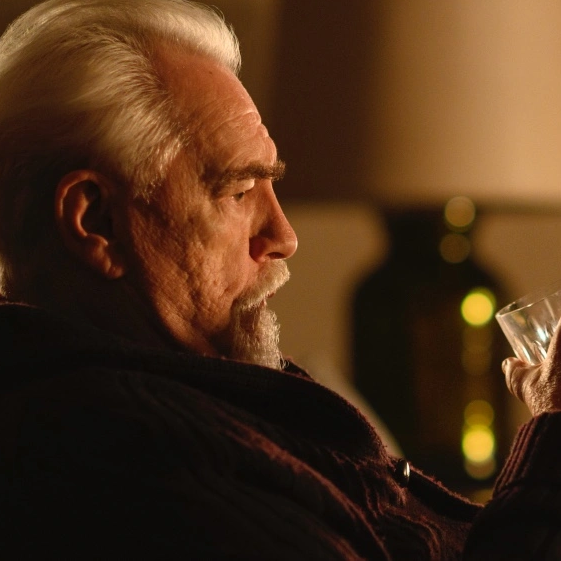
Succession – is America « late imperial » ?

Spoiler alert: this analysis contains clues which may spoil the show’s plot.
“Collapsing American Empire”, “terminal decadence”, “late imperial” – the sombre British mood of Jesse Armstrong and of his fellow writers is rarely spared to the US viewer of the brilliant TV show Succession (2018-23). In the late 18th century, British historian Edward Gibbon popularized such rise and fall narratives in his infamous tale of the Roman Empire, and the UK has never stopped trying to decipher signals of its own demise ever since.
But after three centuries of imperial growth, and a sad Brexit vote, it does seem that the royal island is finally receding nowadays. Should one say the same of America though? Are Armstrong and co projecting here?
US entertainers, not producers
News, cruises, resorts, theme parks: the show’s company, Waystar, combines a lot of what defines America’s capitalism in our century. Symbols and fun. Influential US services with unclear export value. A share of global manufacturing that reached 50% during World War II dropped to a mere 17% now, China leading the way with close to 30% of the world’s manufacturing output.
Logan Roy, the brutish US CEO of Waystar in Succession, embodies that post-industrial trajectory at 84 years of age. More than that: he is responsible for it, having made his own billions on that wave. But now he seems to despise his own creation without feeling any paternity for it whatsoever: “America? I don’t know… when I arrived, they were these gentle giants smelling of fucking gold and milk. Now look at them, they pissed it all away: fat as fuck, scrawny on meth and yoga”.
Earlier in season 2, Logan comes closer to an indirect realisation of what he actually brought to the United States – a certain mixture of hatred and leisure: “nothing to be ashamed of, our stuff, Logan tells his son Kendall, we give them a bit of laugh, some decent TV, news that don’t talk down to them. Good fucking people. Nice fucking folk!”. It almost feels there, for a second, that he is trying to convince himself of something, that he is once again putting off an introspection that will never come.
That mild schizophrenia is apparent in Logan’s ambivalent relationship to work itself. Kids or mistresses pushed up in high-level positions without the experience and the diplomas (Roman, Shiv, Kerry), or without the composure (Kendall), Ivy League advisers with real technicity constantly mocked, pushed, or humiliated, the goofy cousin Greg – “highest paid executive assistant in history” with a $200K yearly contract. Also, this admission by Swedish tycoon Mattson that success is just “analysis + capital + execution... anyone can do that”.
One is reminded of philosopher Hannah Arendt’s foresight in The Human Condition (1958). After recalling the Greeks' and Romans' contempt for work, and the escape from it through slavery for a small elite, Arendt points out how ridiculous the notion of work has become again today: “[…] laboring is too lofty, too ambitious a word for what we are doing, or think we are doing […] each specialized performer needs but a minimum of skill” in its well-compartmentalized part of the process now.
Bottom line in the show: weakened interchangeable “cogs” (Succession’s favourite synonym for “employee”) and billionaires dodging sound management. It is only logical that Tom Wambsgans, the son-in-law who can absorb the most humiliation over an infinitely long period of time, wins the silver trophy in the end.
Europe’s borders = the future?
The picture does not turn rosier for America when Logan leans towards Europe for a successor. Against all demographic and migratory trends, America’s future continues to look “white” for the media tycoon – just not the white you would expect.
It is a Swedish billionaire, Mattson, who gets the best chance of controlling Logan’s US company towards the end. When introduced in season 3, the former appears to ride on mainstream Scandinavian values: liberalism, tolerance, gender equality. But the viewer quickly gets the fraud: sexual harassment on his director of public affairs, portrayal of his employees as “little folks”, bringing the slender New Yorkers in season 4 to the wild and more conservative Norwegian mountains – a power move of a Darwinian “survival of the fittest” nature.
Many episodes confirm the show’s appetite for Europe’s cruder peripheries. Think of the ugly “boar on the floor” team building event in Hungary’s forests (season 1), of the family vacations in Croatia or of Logan’s escape in Bosnia (season 2). Remember also Logan’s modest Scottish origins before he migrated to America. The rest of Europe? Well, it is quite simply debilitated by free healthcare and “angry Arabs”. In season 3, Mattson buys this fabulous residence on the northern Italian Lake Cuomo, Europe’s epicentre, but sleeps on the floor because he cannot cope with the comfort and the joy expected from his wealth.
Europe’s harsher extremities – whether in the north, east or south – tower above its richer bureaucratic core in Succession; extremities that breathe new oxygen into America’s sleepy endogamous capitals in the show. There is a certain melancholy in that ancient transatlantic vitality swap as it may be the last time such TV script will feel true to realities, if it is not already obsolete?
America’s white population is actually declining. And Europe is getting older – margins included. Also, being a European frontier is no longer a walk in the park: bullying neighbours, rising sea level, higher transport costs to reach remote areas...
America (still) winning on points
Given the above, one may argue that a merger with Mattson, that last European savage, is Logan’s ultimate wrong turn for America - so why pick the Swede?
Simply put, he is tech without the climate alarmism and the moralizing of California. That is why the show does this frequent counter-intuitive slide to Europe instead of going West, if the company is to be saved from New York’s (alleged) decadence. Is that the future though?
First, Mattson’s business vision is a lazy extension of Logan’s: entertainment services only. Cruises + parks = over. The young Swedish CEO does not believe in fixed assets, real estate, infrastructures. “Not scalable”, he says in season 4 (episode 6), betting all on a frictionless global media paradise accelerated by Artificial Intelligence. In that sense, he doesn't see the return of protectionism and of large-scale hardware industries to guarantee tomorrow's strategic autonomy in the face of China in particular.
Second, mimicking Logan himself, the Swede praises Singapore and South Korea in the last season while arguing that “New York is so second world”. Nasty punch but… really? The fertility rate of both Asian countries averages 1 child per woman, and they are heavily pressured by a dominating China. No such clouds for the United States whose population and armed forces continue to grow.
Ok, fine, but their democracy increasingly pits Americans against each other, the English writers of Succession may reply: a far-right populist leader becomes President of the United States in the show (wink-wink 2016).
Very well. Point taken. Is it allowed to think the jury is still out on that one though? A colder interpretation would argue that Donald Trump (also) brought millions of Americans out of their apathy and initiated the industrial revival currently expanded by Joe Biden. US institutions still function and represent. In a way, the show bears proof of that when the eldest heir, Connor Roy, a touching dummy, gets less than 1% of the presidential vote in the last season. Succession could not turn its own US election into a full farce because it remains a breath of fresh air, whatever the actual smell.
The show’s creator, Jesse Armstrong, passes on to American viewers an old British insecurity, that Anglo-Saxons are becoming the modern-day Rome or Venice: only good for being trade intermediaries and carnival aristocrats. Imperial Britain was haunted by the parallel for a while (see novelist Kipling or art historian Ruskin). It feared most losing its metal and maritime edge, much like the Venetians they pushed out of the competition in the 16th/17th century, when the latter turned picky and expensive.
But Armstrong forgets two things that French historian Fernand Braudel reminded us in his analysis of modern Italy: power is always relative to others, in times of growth as in times of recession. Second, the Venetian Republic surrendered to Napoleon more than three centuries after its economic peak, proving a capacity for rebound.
Empires are not about continuous highs but about durability. And Americans have just started their merry-go-round. How about cutting them some slack, London?
Michael Benhamou, CEO of Focillon – Humanities Foresight. Former political advisor for NATO and for the EU.
